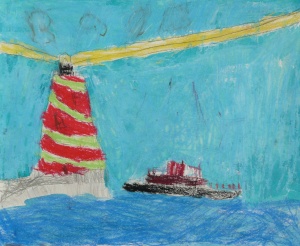 A recent Wall Street Journal article by Jeffrey Zaslow, “Families with a Missing Piece: A New Look at How a Parent’s Early Death Can Reverberate Decades Later,” raises important issues to consider if we are sincere about doing our best for all our collective children.
A recent Wall Street Journal article by Jeffrey Zaslow, “Families with a Missing Piece: A New Look at How a Parent’s Early Death Can Reverberate Decades Later,” raises important issues to consider if we are sincere about doing our best for all our collective children.
Obviously it is a terrible thing to lose a parent, and the article makes a number of important points, including increased risk for depression and suicide of the course of life for those who lost parents when still children.
If we are going to look out for our collective kids, it’s worth keeping in mind that when children lose a parent, things like staying engaged in activities with peers and having adults in their lives who are willing to talk with them about their feelings has been shown to make a big difference for kids. A lot of survivors of early parent loss report that therapy and bereavement groups were not necessarily helpful, in contrast to these things tending to be comforting to adults. There are, however, non-profit camps for kids who have lost a parent, and being with other kids in similar boats does seem to offer meaningful assistance. I also think that, as many a grown-up has experienced, the “right” therapist can be comforting while a poor match can feel like insult to injury.
Given that a parent dying is a major loss of control experience, perhaps several meetings with counselors and allowing the child to choose (or decline altogether) is a potential approach. I have found that kids need to be reassured that they will be provided for; in addition to grieving the loss, it is important to address the terror of not being safe or housed or fed, as kids’ minds will go there if no clear plan is explained to the contrary.
The article made me think of several things. Firstly, I realized the large number of children I have worked with who lost parents early, and how feelings of guilt (however irrational) tended to turn out to have been weighing on these kids’ hearts.
I carry many “kids” in my heart (some now grown-up on the outside); friends and clients who lost parents to illness, to murder, to suicide, to abandonment; those who never knew who their parents were because of adoption, or rape, or shame-drenched secrets; parents in jail, parents who disappeared in the wake of death squads in war-torn countries; all in all, those who loved, if they had a chance to love at all, but who either way lost before they could grow-up and stand strong on their own.
I also thought about readers of this blog and how early loss of parents can contribute to sorrow and struggle even as they soldier on living life and possibly parenting (and giving the very thing that they did not themselves get to experience). There is the powerful unconscious trigger of a child turning the same age that the parent was when his or her own parent died. There is the fear of death that can arise as a person nears or becomes the age his or her parent was when they died. There is a lot that goes unseen, unacknowledged, never talked about—a lot that leaves us lonely and sad.
I also thought about the impact of parents who left when a child was young, of the impact of parents who had mental illness or substance abuse and “left” in different ways.
The long and the short of it, is that many of us carry deep and often not-yet-healed wounds, and thus it serves us to be conscious of them. By not sweeping our sorrow under the rug or denying our pain we have opportunity to come together as the living and find solace and kindred experience with others who have suffered in similar ways, and with others who have not but care all the same.
Children can motivate us to heal in ways that we do not as readily embrace if it is just ourselves at stake. Perhaps these words strike a chord in your life, or in the life of someone you love. Perhaps these words can arrive in the spirit of loving kindness and compassion, inspiring us toward connecting and marveling at the mysteries both heartbreaking and soul-making that also create the possibility of transformation, true love and the possibility of laughing through our tears, an invitation for more life and the intensity of feeling that it takes a village to hold and withstand—a collective well at which we gather to console, love and celebrate—to truly live and, if we’re fortunate, die well and without bitterness, regret or confusion.
So, here’s to love for all who have left their children when still young for whatever reason, in sickness and in despair, in unconsciousness and in shock, in innocence and accident, in guilt and tragedy; and here’s to those who have been left, who have tasted terrible sorrow and loneliness, fear and anger, guilt and shame, despair and confusion—and to the loving recognition that we are all each others’ collective children and also each other’s collective parents—brothers and sisters to each other, and in aggregate we somehow contain all the love and all the sorrow of the world, but not alone.
Namaste, Bruce



{ 2 comments… read them below or add one }
home run, thank you. Hits deep.
Healing Wishes all around.